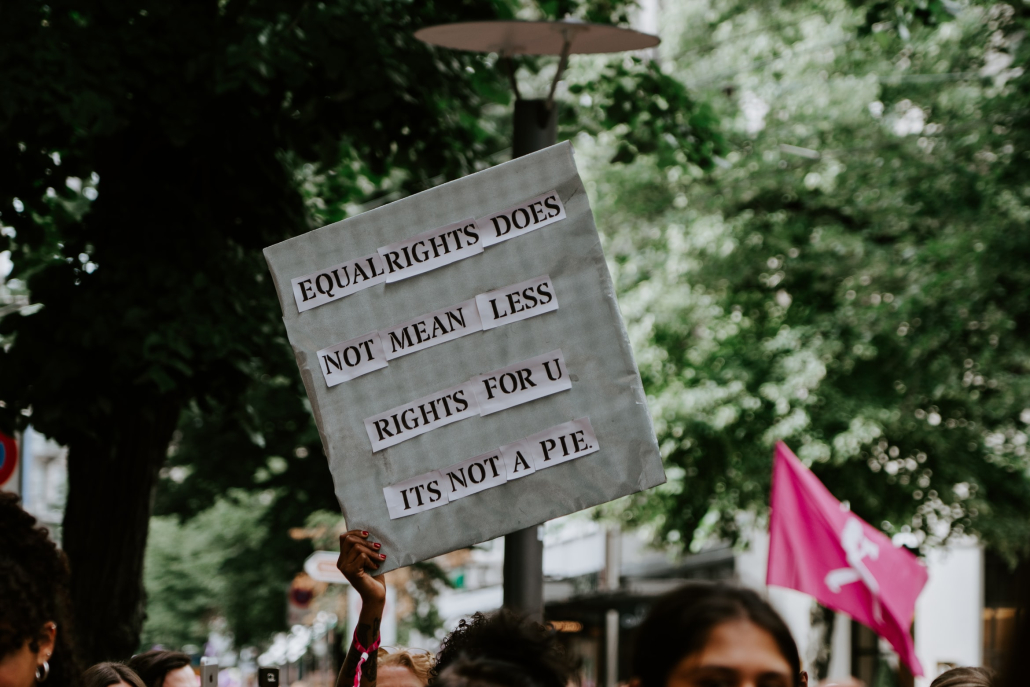Law & Disorder: The fight for equality persists, even in law

The United States Constitution is a long-winded, verbose document that gives anyone working in law a headache. So you probably didn’t know it got 58 words longer last Thursday. I most certainly didn’t. Those 58 words are “Equality of rights under the law shall not be denied or abridged by the United States or by any state on account of sex.” The Equal Rights Amendment has finally gone into force.
The ERA was first proposed in 1923 by the National Women’s political party but was not passed by the U.S. Senate until 1972. It then took another 48 years to be ratified after Virginia signed on and the amendment finally met the requirements of Article V of the Constitution. Two-thirds of both houses of Congress and three-quarters of the states have approved and after an additional two-year post-ratification waiting period, women at long last have their rights constitutionally protected. Right?
Nope.
One extra tidbit stands in the way of the ERA becoming the law of the land: an expiration date. When Congress passed the ERA, it also got to determine how long the states had to ratify the amendment. They thought a decade would be enough time for 38 states to sign the goddamn document. Sadly, only 35 managed to do so before 1982. Nevada, Illinois and Virginia, what the fuck took you so long?
So where does that leave us? Limbo.
As New York Times writer Jesse Wegman explains, “New printings of the Constitution will not include a 28th Amendment. The Supreme Court will not treat it as part of the nation’s fundamental law. There will be no command from on high that women and men must be treated the same.”
Despite the Constitution not having a single provision regarding a timeline requirement, the national archivist and judges refuse to accept the amendment as law.
The Washington Post writer Amber Phillips discusses the ways supporters of the ERA can get over this hurdle: Bring the issue to the Supreme Court; Congress could pass a resolution or start all over. But this hurdle should not exist in the first place.
“It’s insane that two decades into the 21st century, the U.S. Constitution still does not formally recognize the full equality of more than half the country’s population,” Wegman said.
It’s beyond insane, it’s unfounded, groundless, unjustifiable and it makes me want to rip my hair out.
When people think about equal rights on the basis of sex and the constitution, many think of the 19th Amendment which gave women the right to vote. It was one of the greatest milestones in gender equality, but, as Bustle writer Lea Rose Emery puts it, “Voting isn’t everything.”
There shouldn’t be an argument as to whether or not women and men should have equal rights. It shouldn’t even be a question. Yet only 10 countries have full equal rights for women, and the U.S. is not one of them. Yet, people have the audacity to say that we are the “greatest nation.”
Wegman argues that the biggest issue that stands in the way is abortion, as opponents of the amendment fear that it will “result in bans on state laws that restrict or prohibit a woman’s right to terminate her pregnancy.” What a terrifying thought, that the amendment would finally stop white men in power from telling a woman what to do with her body.
President Joe Biden issued a statement on Jan. 27 stating, “It is long past time that we put all doubt to rest. I am calling on Congress to act immediately to pass a resolution recognizing ratification of the ERA.”
There is nothing truly stopping Congress from enforcing the ERA besides their own biases and ignorance.
Legal sex discrimination has pervaded our society far too long, but the ERA has the power to stop that. As stated on the ERA official website, while gender inequalities are caused by individual behaviors and preexisting social norms, the U.S. constitution still holds much power and the amendment can change how women are treated under the law. With the ERA, there will be “zero tolerance for any form of sex discrimination.” Is that so much to ask for?
Helen Nguyen is a junior writing about law and social issues in her column “Law & Disorder.” She is also the opinion editor at the Daily Trojan.

